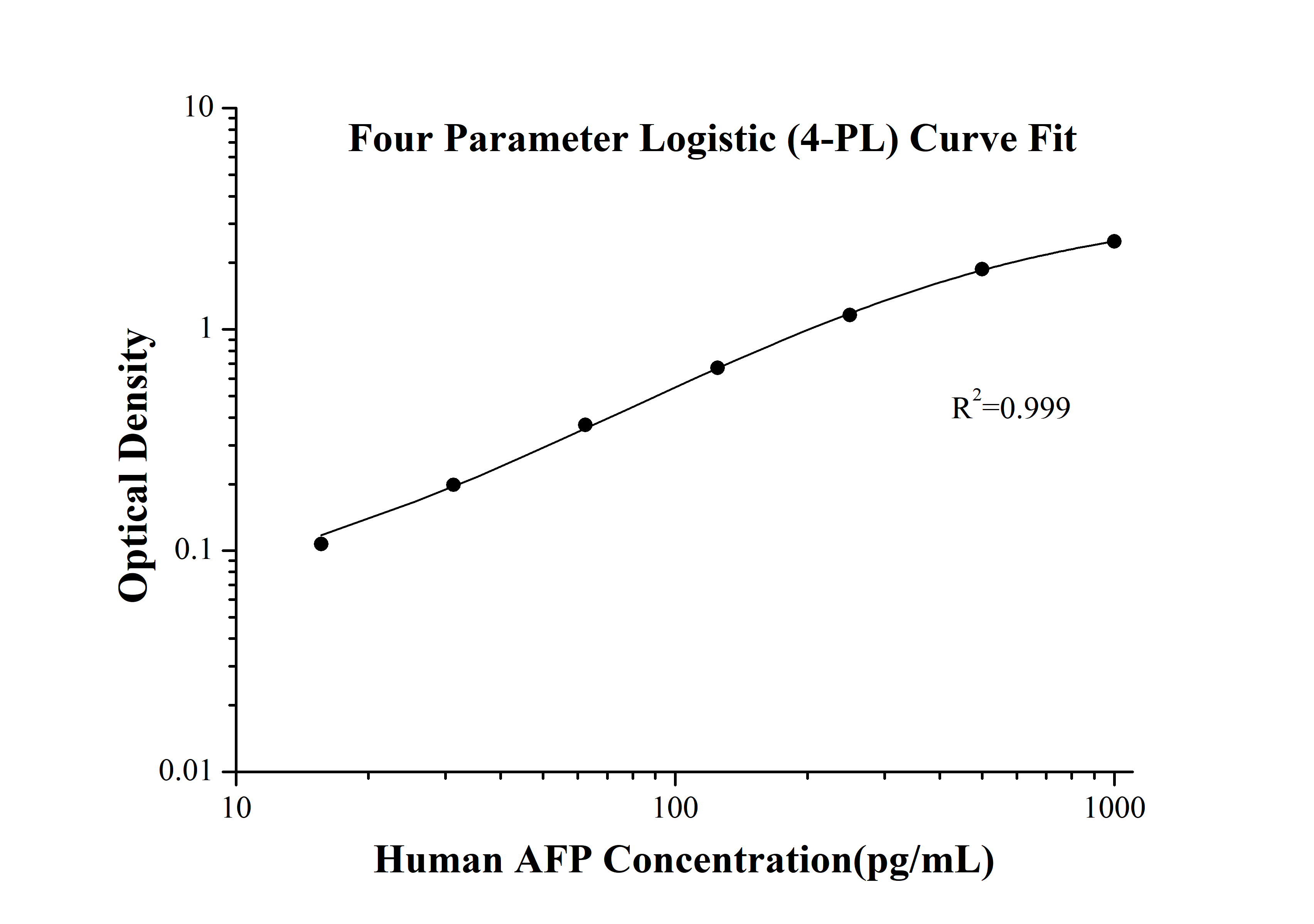Human AFP ELISA Kit
Sensitivity
1.9 pg/mL
Range
15.6-1000 pg/mL
Reactivity
Human
Validation Data Gallery
Product Information
KE00394 is a solid phase sandwich Enzyme Linked-Immuno-Sorbent Assay (Sandwich ELISA). The human AFP ELISA kit is to be used to detect and quantify protein levels of endogenous human AFP. The assay recognizes human AFP. An antibody specific for human AFP has been pre-coated onto the microwells. The human AFP protein in samples is captured by the coated antibody after incubation. Following extensive washing, another horseradish peroxidase (HRP)-conjugated antibody specific for human AFP is added to detect the captured human AFP protein. For signal development, followed by Tetramethyl-benzidine (TMB) reagent. Solution containing sulfuric acid is used to stop color development and the color intensity which is proportional to the quantity of bound protein is measurable at 450 nm with the correction wavelength set at 630 nm.
| Product name | Human AFP ELISA Kit |
| Tests | 1 X 96 well plate |
| Sample type | Serum, Plasma, Cell culture supernatant |
| Assay type | Sandwich |
| Sensitivity | 1.9 pg/mL |
| Range | 15.6-1000 pg/mL |
| Reactivity | Human |
| Tested applications | Sandwich ELISA |
| Gene ID (NCBI) | 174 |
Recovery
| Sample Type | Average | Range |
|---|---|---|
| Human serum | 100% | 94%-108% |
| Cell culture supernatant | 91% | 76%-98% |
IntraAssay
| Sample | n | mean ( pg/mL) | SD | CV% |
|---|---|---|---|---|
| 1 | 20 | 571.5 | 23.8 | 4.2 |
| 2 | 20 | 121.8 | 4.5 | 3.7 |
| 3 | 20 | 29.7 | 1.4 | 4.7 |
InterAssay
| Sample | n | mean ( pg/mL) | SD | CV% |
|---|---|---|---|---|
| 1 | 24 | 511.3 | 23.7 | 4.6 |
| 2 | 24 | 124.0 | 5.0 | 4.0 |
| 3 | 24 | 31.1 | 1.7 | 5.5 |
Background Information
AFP (alpha-fetoprotein) is a major plasma protein found in the fetus while plasma levels decrease rapidly after birth. AFP is one of the earliest markers of the hepatocyte lineage. High AFP concentrations have been correlated with tumor cell growth. Detection of AFP in plasma is important in diagnosis of hepatocellular carcinoma (HCC), stomach cancer and germ cell cancers. Altered levels of both fetal and maternal AFP have been associated with hypothyroidism, autoimmune disorders, and heart defects.
Properties
| Storage Instructions | All the reagents are stored at 2-8℃ for 6 months or -20℃ for 12 months. Refer to the protocol for further storage instructions. |
| Synonyms | AFP,Alpha fetoglobulin,alpha fetoprotein,Alpha-1-f |
